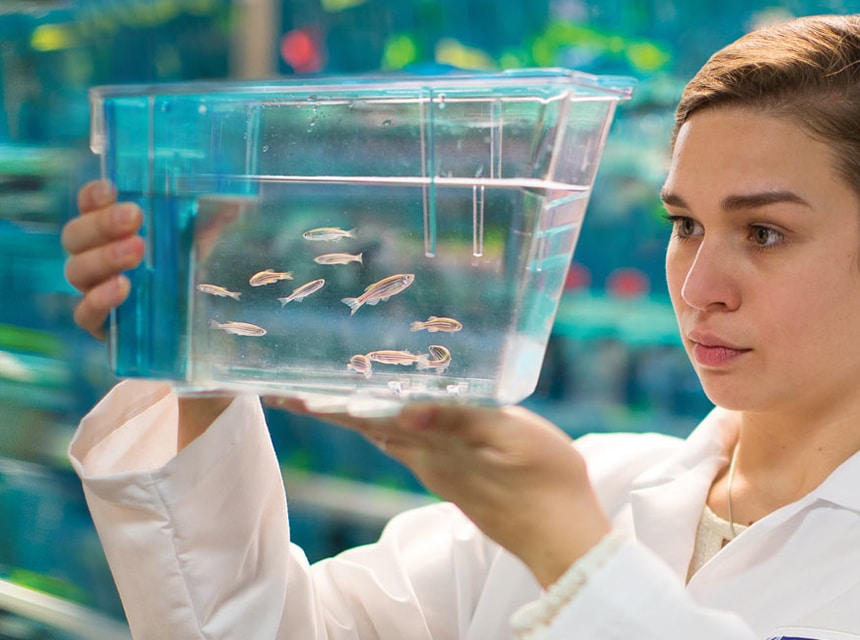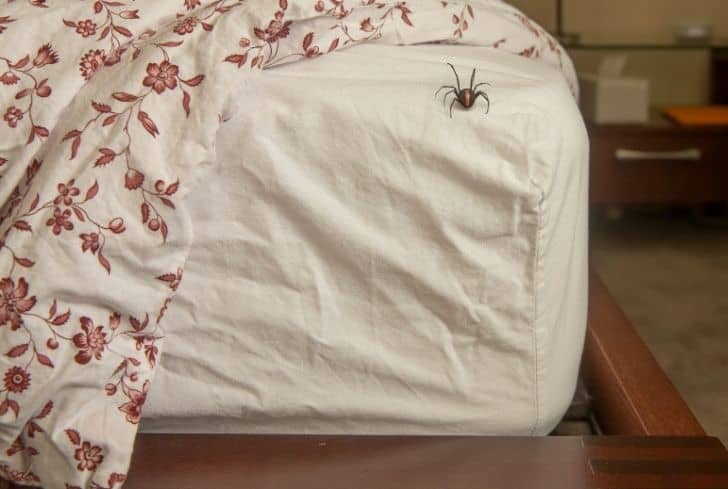

Sleep is something that most people— adults especially— love and wish they could get more of. Sleep helps us rest and recover from our day and gives our bodies time to recharge before we start our daily tasks all over again. Like humans, most land mammals sleep by finding a safe, quiet place to rest where they can fall asleep without worry. But what do water creatures do when it’s time to sleep? You’ve probably asked that question at least once in your life, and we have the answer for you! As it turns out, fish are a bit different from humans and land mammals in the way that they sleep. In short, while they don’t sleep in the same way we do, they do enter a state of reduced brain and body activity that allows them to recharge.
Fish, like all living creatures, need to sleep— at least according to scientists. While it’s often unwise to make categorical claims like “all living creatures sleep,” scientists have yet to discover an animal that doesn’t regularly enter a state of rest.
Interestingly enough, while scientists know that all animals need sleep, they still don’t yet know why this is the case. There are a few theories about this, however, and these generally fall into one of two camps:
When you examine what happens when you don’t sleep Trusted Source The Science of Sleep: Understanding What Happens When You Sleep | Johns Hopkins Medicine The first part of the cycle is non-REM sleep, which is composed of four stages. The first stage comes between being awake and falling asleep. The second is light sleep, when heart rate and breathing regulate and body temperature drops. The third and fourth stages are deep sleep. Though REM sleep was previously believed to be the most important sleep phase for learning and memory, newer data suggests that non-REM sleep is more important for these tasks, as well as being the more restful and restorative phase of sleep. www.hopkinsmedicine.org — brain fog, compromised immune system, irritability, etc.— it’s easy to lend your support to the first group. It is possible, however, that both of these hypotheses are correct.

If you ask a scientist about whether or not fish sleep, don’t be surprised if they gently correct you by answering, “well, fish rest.” There’s a reason why some scientists are hesitant to define a fish’s resting state like sleep, however, but it doesn’t necessarily mean that fish don’t sleep.
Scientists often prefer the term “rest” when referring to fish because they simply don’t know conclusively if a resting fish is sleeping, and here’s why:
As you may already know, humans have four different stages of sleep that they cycle through during a night of rest. Between falling asleep at night and waking up in the morning, we will go through two stages of light sleep, one stage of deep sleep and REM (rapid eye movement) sleep.
Fish, too, have sleep stages that their periods of rest tend to follow. Scientists have been able to monitor zebrafish and learn that they experience two stages of sleep: deep sleep and REM sleep.
Have you ever heard of a circadian rhythm? It’s what scientists call the 24-hour cycle that our body experiences and can also be referred to as our internal clock. Scientists theorize that we evolved to have a circadian rhythm and that this internal clock is why we feel sleepy at night and awake during the day.
Fish seem to have a similar sleep cycle to the human circadian rhythm. During an experiment, scientists woke up sleeping zebrafish with light and other interruptions. They found that when they woke them with light, it greatly affected their ability to fall back asleep.
Just like with land animals, all fish species are different and have their own special sleep tendencies and needs. Humans, for instance, are supposed to sleep an average of 8 hours per night, but giraffes only sleep for about 4 and a half! Fish are very similar, and some get a lot of sleep while others only get a little.
And just like there are differences in sleep duration, there are also differences in sleep methods for fish. The most common are swimming while sleeping, estivation, floating in place, and being protected by things like sand or coral.
Some fish maintain movement in their fins during their sleep because it helps them breathe. Unlike humans, fish get their oxygen through the water that passes through their gills. Maintaining movement in their fins allows certain fish to keep the water flowing around them and through their gills, which helps them get oxygen while they are asleep.
Not all fish need to move while they sleep to get oxygen, however, and are able to sleep while in a stationary, floating position.
Another way that fish sleep is by entering into estivation, which is a similar state to hibernation. Estivation has essentially suspended animation and is a state that helps a lot of creatures conserve energy (and require fewer resources like food and, for land animals, water).
Fish aren’t the only creatures that enter estivation as a form of rest or sleep. Many reptiles and amphibians also use estivation to slow their metabolism and survive when resources are scarce. Snails are another example of a creature that utilizes estivation.
While we already know that some fish prefer to swim while they sleep, others may prefer to seek shelter from predators or strong currents while they sleep. Certain sharks, for example, prefer to sleep or rest at the bottom of the ocean along the seafloor. Many other sharks are partial to finding shelter in sea caves away from prying eyes.
Other types of fish might seek shelter in natural structures like coral reefs or rock formations. There are some types of fish that even bury themselves in the sand to avoid being detected by predators while they sleep.
Since we can’t hear fish snoring, it can be hard to figure out if your fish is sleeping or simply resting. If you have fish (or are preparing to get one soon), here are some ways to figure out if your fish friend is asleep or just not moving:
If you’re having trouble seeing your fish in your aquarium and want to upgrade to a high visibility tank, we love this tank with controllable LED lights as well as this tank which uses blue LED lights to enhance the colors on fluorescent fish.
Like most animals, fish also need to sleep in order to rest and restore their bodies after a hard day’s swimming. Even though fish don’t sleep the same way that we do, they still enter into a state of rest that achieves the same effect as human and land animal sleep. Just like land animals, marine animals are all different and have different needs and styles of sleeping.
If you’re curious to learn more about fish sleeping, you should consider purchasing a fish for yourself so you can record their sleeping habits for yourself. Having a fish in your room may also be a great idea if you’re prone to nightmares, as seeing the fish when you wake up will be soothing.





